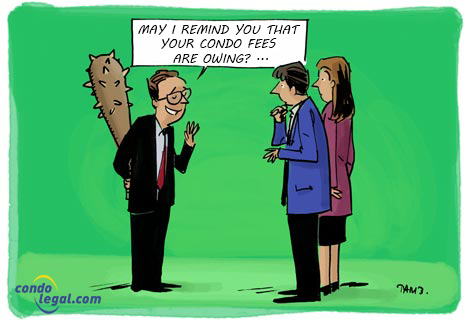
When selling an immovable, the buyer is required to pay with interest on all common expenses owed by the seller (article 1069 of the Civil Code of Quebec). The syndicate will then be able to claim sums from him that he never thought he would have to pay. However, if a request concerning the statement of common expenses has been sent to the syndicate (before the final sale), either by the notary or by the buyer, and the syndicate has not responded to it within 15 days of the said request, the latter will not be able to claim payment from the new co-owner.
Outstanding or future common expenses
To know how the burdens are distributed between the buyer and the seller, it is necessary to observe certain rules. The buyer or his notary must, before signing the deed of sale, ask the board of directors or the condo manager for a certificate specifying the following information:
The statement of common expenses due to the syndicate by the seller;
The amount of the special charge calls (special assessment) established by the board of directors before the date fixed for the signing of the sale (following the consultation of the meeting of co-owners), but whose payment is requested by the board of directors after that date;
The status of common expenses (condo fees) calculated by the board of directors before the sale.
The communication of this information is crucial for the buyer, since in principle the latter is responsible for the common expenses unpaid by the seller. In addition, the new co-owner is required to pay to the syndicate the sums claimed by the syndicate as common expenses that are due after the sale, even if they were fixed before the sale.
The date of distribution of the common expenses
The seller and the purchaser may divide the common expenses between themselves, with or without the assistance of the notary instrumenting. It will be enough for them to set a date so that the distribution can be made. Very often, this date corresponds either to that of the transfer of the property, or to the date on which there is taking possession of the apartment. From that moment on, the buyer will have to assume the payment of his contribution to the common expenses.
Seller's obligation to inform
As for the seller, the former owner of the fraction, he is bound by a general obligation to inform the buyer of any fact relevant to the sale of which he is aware, in particular the fact that a special assessment could be payable after the sale. This type of charge call is required by the syndicate of co-owners to all co-owners, to meet expenses that are generally not provided for in the provisional (annual) budget of the co-ownership. The seller's silence in this regard is likely to constitute a fraudulent reluctance which could justify the award of damages. Indeed, the obligation to disclose of the selling co-owner is not limited to the sums due on the day of the transfer of ownership, but also extends to the amount of anticipated expenses already decided by the board of directors, even if the amount of the royalty is not yet provided for in the budget.
 WHAT YOU SHOULD KNOW! The distribution of common expenses may be the subject of an adjustment between the seller and the buyer. In practice, when the sale occurs before the due amounts resulting from a special contribution becomes due, it is not uncommon for the seller to reimburse the buyer for the share in this call for charges, at the time of the sale.
WHAT YOU SHOULD KNOW! The distribution of common expenses may be the subject of an adjustment between the seller and the buyer. In practice, when the sale occurs before the due amounts resulting from a special contribution becomes due, it is not uncommon for the seller to reimburse the buyer for the share in this call for charges, at the time of the sale.
 WHAT TO KEEP IN MIND: The common expenses are payable by the owner of the apartment, at the time they are due. In order to buy with full knowledge of the facts, it is better to inquire about the amount of common charges unpaid by your seller. You will avoid having to pay them yourself, not to mention the possible extraordinary charges (special assessment) to come that would be known to the seller.
WHAT TO KEEP IN MIND: The common expenses are payable by the owner of the apartment, at the time they are due. In order to buy with full knowledge of the facts, it is better to inquire about the amount of common charges unpaid by your seller. You will avoid having to pay them yourself, not to mention the possible extraordinary charges (special assessment) to come that would be known to the seller.
 WARNING! The liability of the notary could be invoked in relation with unpaid common expenses of the vendor. Indeed, a notary is at fault towards a purchaser if he fails to request a statement of the common expenses owing.
WARNING! The liability of the notary could be invoked in relation with unpaid common expenses of the vendor. Indeed, a notary is at fault towards a purchaser if he fails to request a statement of the common expenses owing.

